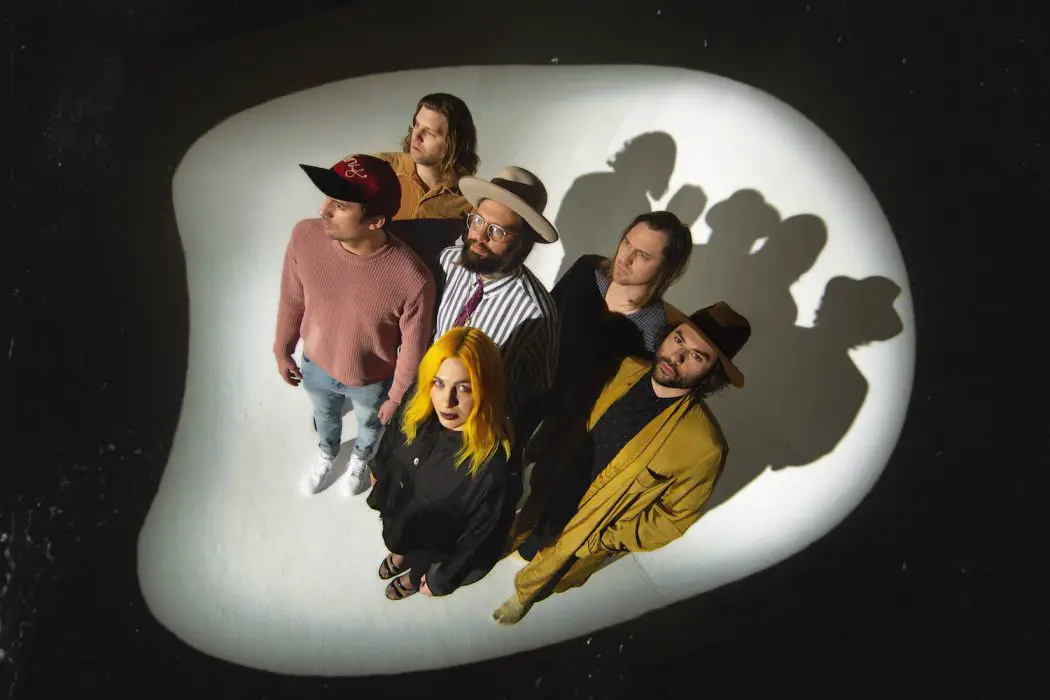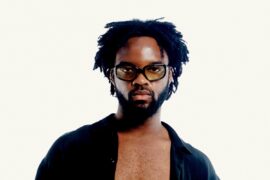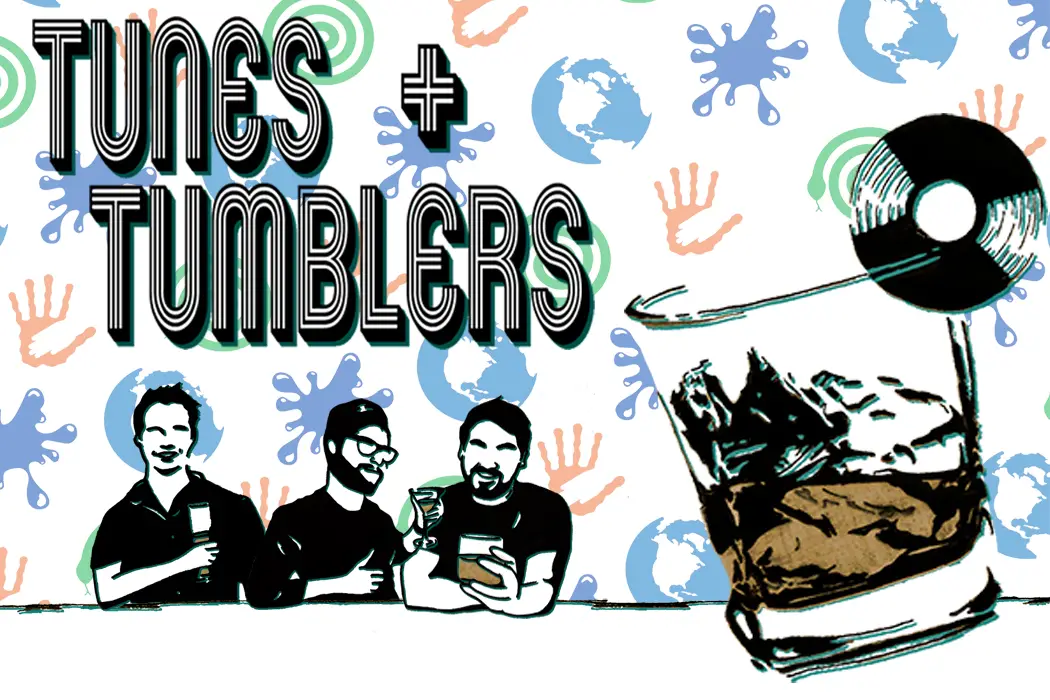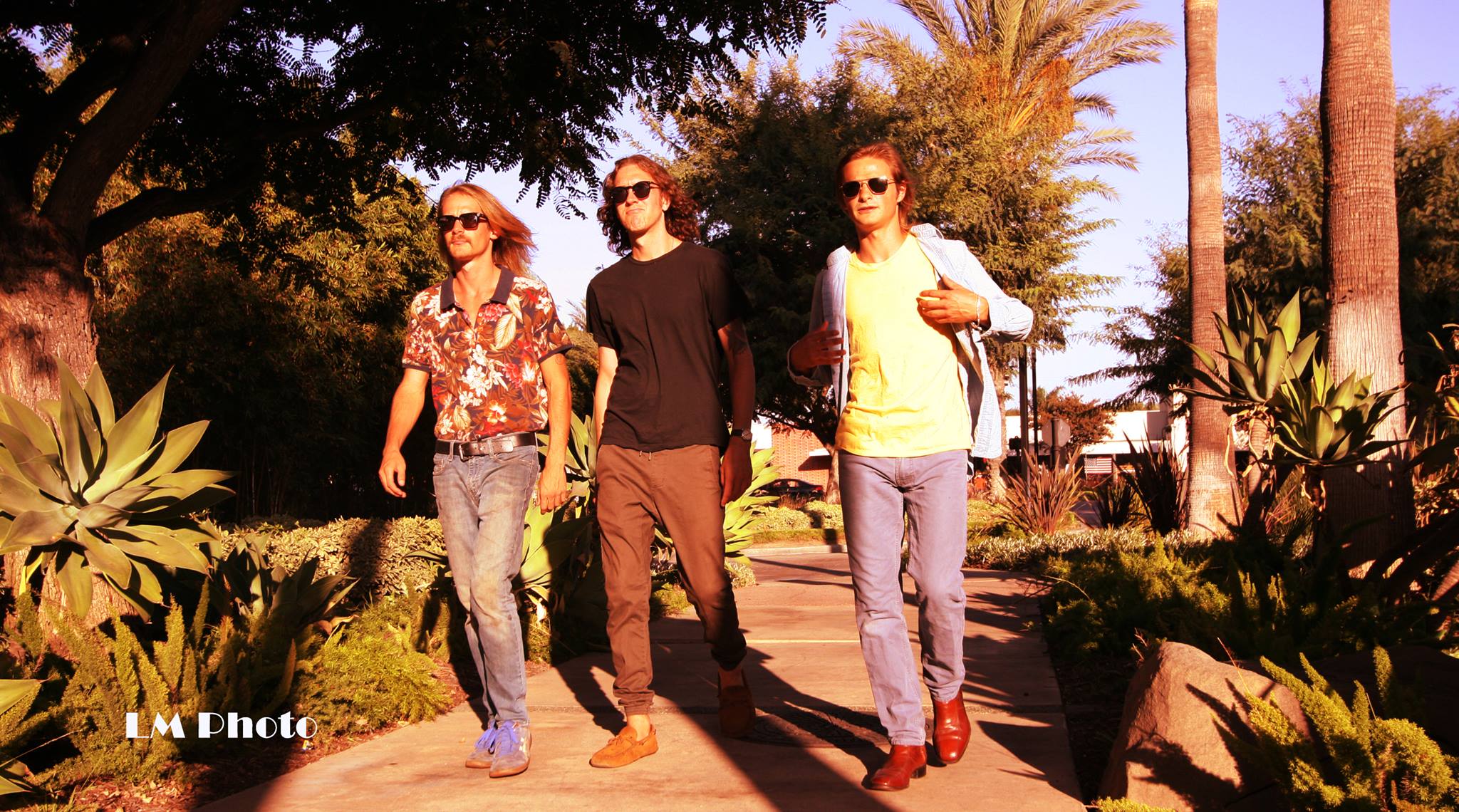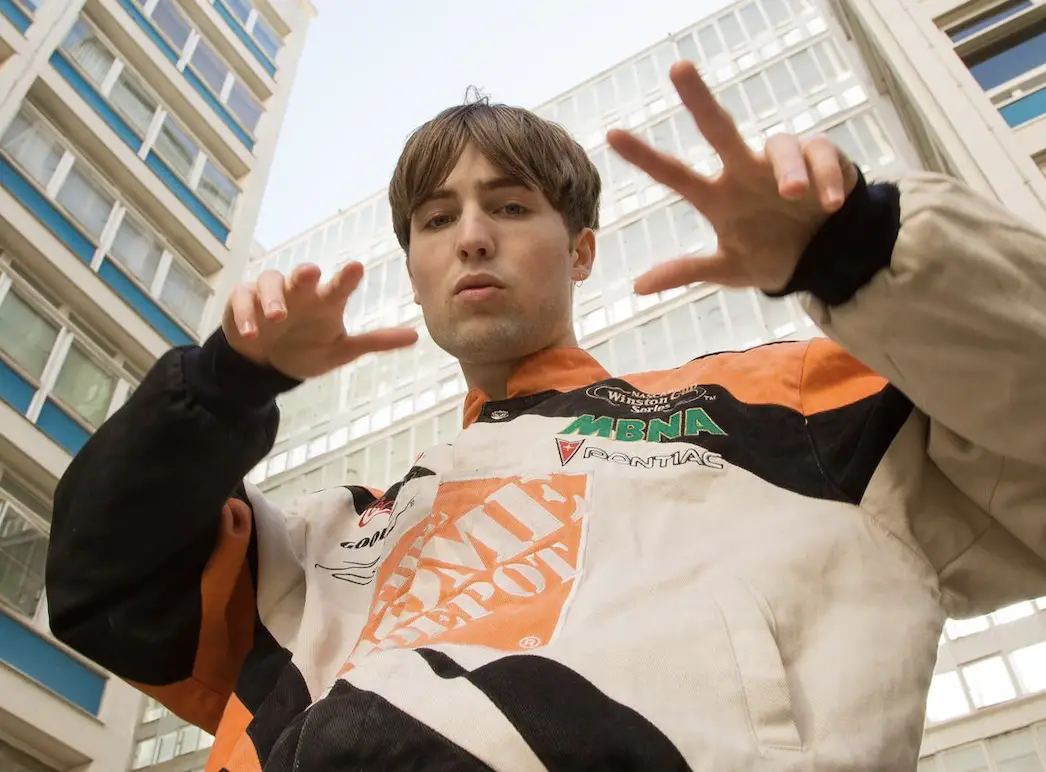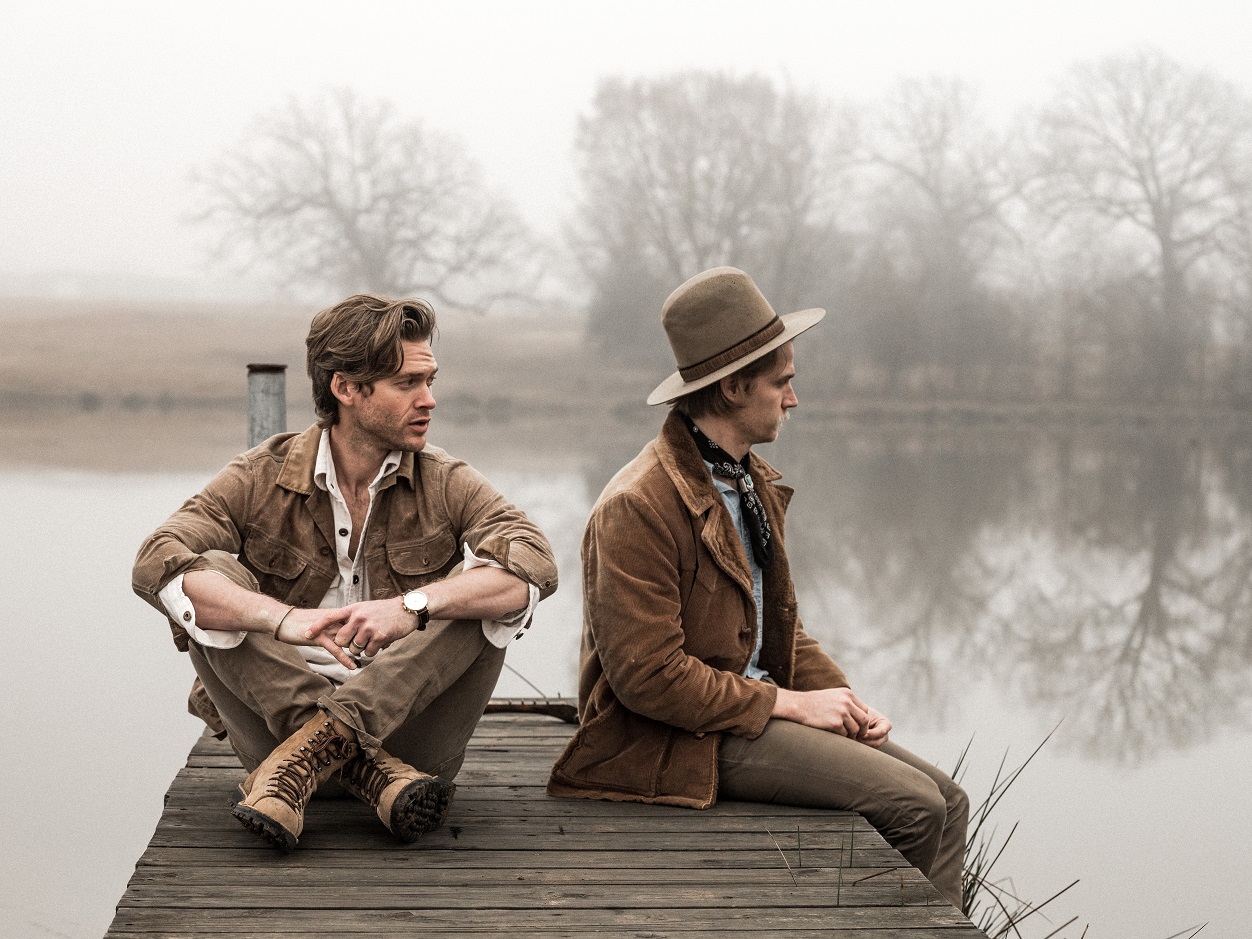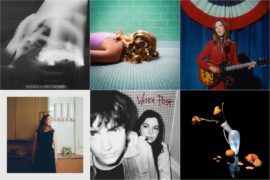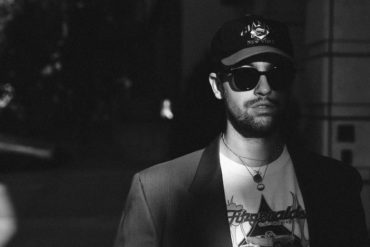The Head and the Heart’s Jonathan Russell speaks to Atwood Magazine about his path of self-discovery, the band’s renewal and rejuvenation, and the intimate magic of their fourth album, ‘Living Mirage’.
‘Living Mirage: The Complete Recordings’ – The Head and the Heart
Sometimes I feel like we gravitate towards all the negativity that’s going on around us. But if you look for the right things, you can turn a situation into something beautiful.
Due in part to their name, where they’re from, and their style of music, Seattle’s The Head and the Heart have always felt like underdog champions. Formed a decade ago by Jonathan Russell, Josiah Johnson, and friends, the band took everyone by surprise with their self-titled debut in 2011, mixing a distinctive blend of indie folk, indie rock, and whatever lies in-between those worlds to create an entrancing, beautiful sound that was all their own.
A decade later (with various bumps along the way), The Head and The Heart beat stronger than ever.

2019 saw the release of the band’s fourth album, Living Mirage, which Russell considers their greatest achievement yet. The sweet song “Honeybee,” taken off that record, recently became the band’s highest-streamed release, reaching over 64 million global streams, peaking at #1 on AAA radio, and reaching the Top 10 on the Alternative radio chart. From a commercial perspective, The Head and the Heart are soaring – but the same is true from a personal and sonic standpoint, as well.
The past few years leading up to Living Mirage‘s release marked a period of significant transition for the band.
Today’s lineup finds Jonathan Russell at the band’s healm, accompanied by longtime band members Charity Rose Thielen (violin, guitar, vocals), Chris Zasche (bass), Kenny Hensley (piano), and Tyler Williams (drums), as well as multi-instrumentalist Matty Gervais, who joined in 2016.
Meanwhile, founding member and songwriter Josiah Johnson – responsible for many of the band’s early hits, and a strong vocal presence throughout their first two records – departed from The Head and the Heart quietly and amicably in 2016, during the sessions for their third album, Signs of Light. He has since gone on to pursue his own solo career, which he recently discussed at length with Atwood Magazine – but his presence – or rather, his absence – can still be felt in varying degrees throughout the band’s new music. It doesn’t help that Russell wrote Living Mirage‘s opening track “See You Through My Eyes” and others with his former bandmate in mind; if one tries hard enough, they could interpret all of Living Mirage as the band’s conscious attempt to “move on” without Johnson. But this record is so much more than that.
Organic and free, Living Mirage finds The Head and the Heart at their most intimate, cinematic, honest, and raw.
It’s a record of self-discovery and personal growth; of tenderness and empathy; of self-love, empowerment, and vulnerability. Every song is a world of wonder unto itself, with moments of passion like “Running Through Hell” followed by roaring outpourings of self-doubt in “Up Against the Wall,” and heavier bittersweet pauses of heartache like on “Saving Grace.”
Whether you’re drawn to these tracks, the inimitable pop melodies of “I Found Out” and “Honeybee,” the stripped-down ache of closer “Glory of Music,” or more, Living Mirage has a space for you. In naming the album’s lead single an Atwood Editor’s Pick, I wrote, ““Missed Connection” feels like a brand new phase for a band whose music has always felt so rife with turbulence, whilst full of life.” As a whole, Living Mirage is a record of new beginnings; of taking chances and exploring parts unknown. It’s a seasoned group of musicians leaving their comfort zones and discovering that the “new norm” doesn’t have to be any one thing at all, but rather it can be found wherever life takes you next. This is the freedom that makes Living Mirage shine with effortless grace; it’s the spark that tells us The Head and the Heart’s second decade is going to be even more exciting and adventurous than the last.
Honeybee
Could you imagine where our lives would lead?
That silly ring, it wasn’t meant to be
Luckily you saw in me
Something I couldn’t see
Honeybee
I can’t imagine how my life would be
If all your gravity did not hit me
Oh, don’t you see?
Darling, my honeybee
But here we are
After all the messes and confessions
To the stars
That we never really owned as ours
And if our world comes tumbling down
I never could forgive myself for leaving out
You’re the one
You are the only one
– “Honeybee,” The Head and the Heart

The band recently released Living Mirage: The Complete Recordings, a deluxe album set featuring four brand new tracks – “Glory of Music II,” “Sun Is Rising,” “Backwards Breathing,” and “One Big Mystery.” With over a year since Living Mirage‘s release, these songs add new depth and nuance to the original album, rounding out an already compelling experience and reinvigorating what was already a truly thrilling listen.
Those on their own paths of self-discovery will find connection and familiar ground in Living Mirage. Its songs come from some place deep in the soul, where our hopes and insecurities bubble and fester together as one. It’s a raw unveiling of the band’s humanity: Humble, proud, flawed, finessed, its music wasn’t made by us, it speaks to and for us.
After all these years, The Head and the Heart remain underdog champions: They are as charming and down-to-earth as ever.
Jonathan Russell recently spoke to Atwood Magazine about his own path of self-discovery, the band’s overall renewal and rejuvenation, and the magic of Living Mirage.
I think there’s more love in this record, for ourselves and for the world, than we’ve ever done before.
— —
:: stream/purchase Living Mirage here ::
Stream: “Honeybee” – The Head and the Heart
A CONVERSATION WITH THE HEAD AND THE HEART

Atwood Magazine: Hey, Jonathan, great to connect with you! How are you today?
Jonathan Russell: Yeah, I’m doing very well, thanks!
Diving right into things, Living Mirage is the band's fourth album. People talk so much about the first three records, and there's so much lore around your debut… In the wake of Signs of Light, how did you go about prepping for your fourth record?
Jonathan Russell: We kind of wanted to do – well, I guess the things that we learned from doing Signs of Light… Signs of Light was the first time we worked with a producer, and there were a lot of things that we realized were really great about working with a producer. There’s a lot of things that we now knew to ask for and look for, going into a new album making process. So I feel like we kind of knew more of what we were looking for early on, whereas on Signs of Light, with Josiah leaving in that in that period of time, I think we needed a producer like Jay Joyce – somebody who had enough of an outside vision to take what we were doing, and help us finish it. On the horizon there were a lot of emotions and questions and whatnot –whereas this time around, Chris Zasche, the bass player in the band, served as such a great architect for having a vision from the get-go. My headspace was much more of wanting to be a reactionary person than leading with, “Here’s a batch of songs, let’s get together and work on my songs.”
Traditionally, you and Josiah had shared songwriting responsibilities. Is that accurate?
Jonathan Russell: That’s pretty accurate, yeah! In all honesty though, record one was kind of the only one when we were doing that. Once we started touring – and we toured very extensively on the debut album – Josiah got really burnt out, Kenny (Hensley) got really burnt out. So when we had time off – and we didn’t have much time off between record one and two – people stopped kind of picking up the phone. So that’s really when I started transitioning to finishing songs on my own, and so Signs of Light was also mostly me at home in Richmond, Virginia at the time, flushing out songs almost to a detriment. A lot of the songs were so far along by the time the band got on there, that what room they were given was what room they were given. And that is really, I think, the biggest thing that we took into Living Mirage – was wanting to start the process together, instead of having an outline blueprint of where we can add things – which was great! Like I was saying, I wasn’t ready – from my own starting point, I didn’t have anything to say. So when we went to Joshua Tree in January of 2018, we really started with sounds and exploration sonically, more so than collaborating on music to an already created song.
What I'm hearing is that Living Mirage is perhaps The Head and the Heart’s most organic record since the very beginning – since the first record.
Jonathan Russell: Yeah, I think that’s accurate. It’s funny, you know, I feel like the fourth record reminds me the most of record one in the sense of that kind of collaboration, but also there were no rules. Like on the first album, there’s no identity; there’s no awareness of who you are or what you sound like yet. And so you’re not thinking, “Well, we should do this and not that.” And with this record, I think that was also true, kind of for different reasons. Having Matt Gervais in and Josiah and Kenny out, in retrospect, it turned out to be kind of the perfect storm, because it allowed for this sort of dissolving – dissolution of roles and what our roles are.
Just so I understand, I feel like a big part of the story for Living Mirage, per your publicity, is that Josiah left and Living Mirage came out of it – but actually Josiah left a couple of years before that, in 2016. Is that correct? So he was already kind of out by the time Signs of Light was out.
Jonathan Russell: Yeah, Josiah was there for some of the writing process of Signs of Light, but he didn’t record it with us, and then touring on the record was all Matty Gervais; There was no Josiah, so we had two or three years under our belt playing already-created music with Matty, but it was the first time with him in the writing process, and the first time with Josiah entirely out.
It's amazing how much we're talking about somebody who hasn't been around for so many years. It's like the Syd Barrett of the band.
Jonathan Russell: I know, it’s interesting. There was an interview with Rolling Stone, and Josiah called me to say, “Hey, just want to let you know, they want to interview me as well and get my side of it.” And we both just kind of laughed – it’s like, how long are you going to be interviewed for a band you’re no longer in?
It’s not a conscious uncoupling – or maybe, it is.
Jonathan Russell: I guess it is, but just not for the world. Yeah, I look forward to the days – he’s doing his own thing, he’s making his own music and recording his own record, and I’ve gotten to hear some of it – it’s beautiful. In a way, I’m thankful for it, because it keeps people asking where he is – so that when he puts out his music, people will still be thinking of him, which is super great, because he deserves that.

Moving on from that, you open the record with “See You Through My Eyes” with the words, “A heart-shaped tree standing in between, human nature, and the nature was seen, wouldn't you know it now?” I personally feel that there's a lot of importance on the first songs on records; they introduce the music to come, and they create this starting point. What's the significance of “See You Through My Eyes”?
Jonathan Russell: I feel like I have multiple answers to that question. It’s funny – I think within every song that I ever try and write… I am not one of those people, like a Dylan that just sits down and writes out lyrics then moves forward. Like, I’ll start a song from the very natural place where the lightning strikes, and then it takes me a little while to finish it. So by the time I re-approach a song, I typically have a different muse that I need to finish this song from a genuine spot.
We tried to get away from Josiah, but you just can’t: So the origin of starting with the chorus and the notion of “seeing through my eyes,” for me, it was Josiah, but the person I was writing that song with, the overall thing was, everyone has someone in their life – friend, family member, or partner – that’s struggling with something, whether it’s depression or addiction, and the process that they go through and the process that their friends go through while they’re going through it, is really what that song is about. You wish you could just shake them and tell them directly, “There’s no reason for you to walk around and carry around all this same. If you could see how I see you, you would realize that the world is no longer trying to punish you,” you know? “Stop trying to punish yourself.”
That’s where that song started from, and the line you mentioned really came from when I was trying to finish it. I don’t know, I was just trying to put in some sort of symbolism… Sometimes I feel like we gravitate towards all the negativity that’s going on around us. But if you look for the right things, you can turn a situation into something beautiful.
Sometimes I feel like we gravitate towards all the negativity that’s going on around us. But if you look for the right things, you can turn a situation into something beautiful.
I respect that! I think what's really cool for me about this entire record is that it's like a breakup, but then once you go through it the first time, the second time, it's more like you’re moving on from yourself and from your own inner hang-ups, rather than from the person who was anchoring you to the past. It's really more about the individual moving on.
Jonathan Russell: Wow, you nailed it! Kudos. “Living Mirage,” the song itself, was the first one that we started writing in Joshua Tree that felt like we were onto something new. All of those lyrics are stream of consciousness. At first, it felt like, you can’t get away with just saying things that come out of your subconscious and not have it make sense. And then I took a step back and I read them and like, it does and doesn’t make sense. It’s literally like looking at yourself in a mirror and having the mirror tell you the things that you’re looking for, and removing these hurdles – really realizing that, for years and years and years, just from how you’re brought up and the things you go through, you create these little defense mechanisms. And for a while those things are important and they’re healthy, and they allow you to persevere and get through the harmful things that are in your environment. But when those things go away and you still have all this heavy armor on, it starts to work against you.
And I just realized that I had created all of these mirages if you will, that because you think that these are in existence, you approach things in such a way that you’ve already fixed your scenario; the outcome is already planned, versus being open and – it sounds cliché, but it’s as simple as allowing yourself to be loved. And then until you do that, you really can’t give true love. So that song was me tearing away all of these bits of armor and removing these hurdles that I just carried around for 34 years of my life… Yeah, you summed it up well.
“So then I open my lungs and everything I say is in tune. Then I open my mind, every little mistake comes through.”
Jonathan Russell: Exactly yeah.
I think about this, and I almost understand how the rest of the record came to be once you had this song.
Jonathan Russell: Right. Yeah, it was a turning point for the band musically, but it was an even larger turning point for me personally – which, if I’m the main filter for writing songs, then obviously, songs are going be going through that headspace now, which was such a relief. I mean, I feel like a weight was lifted off my shoulders by this simple awareness.
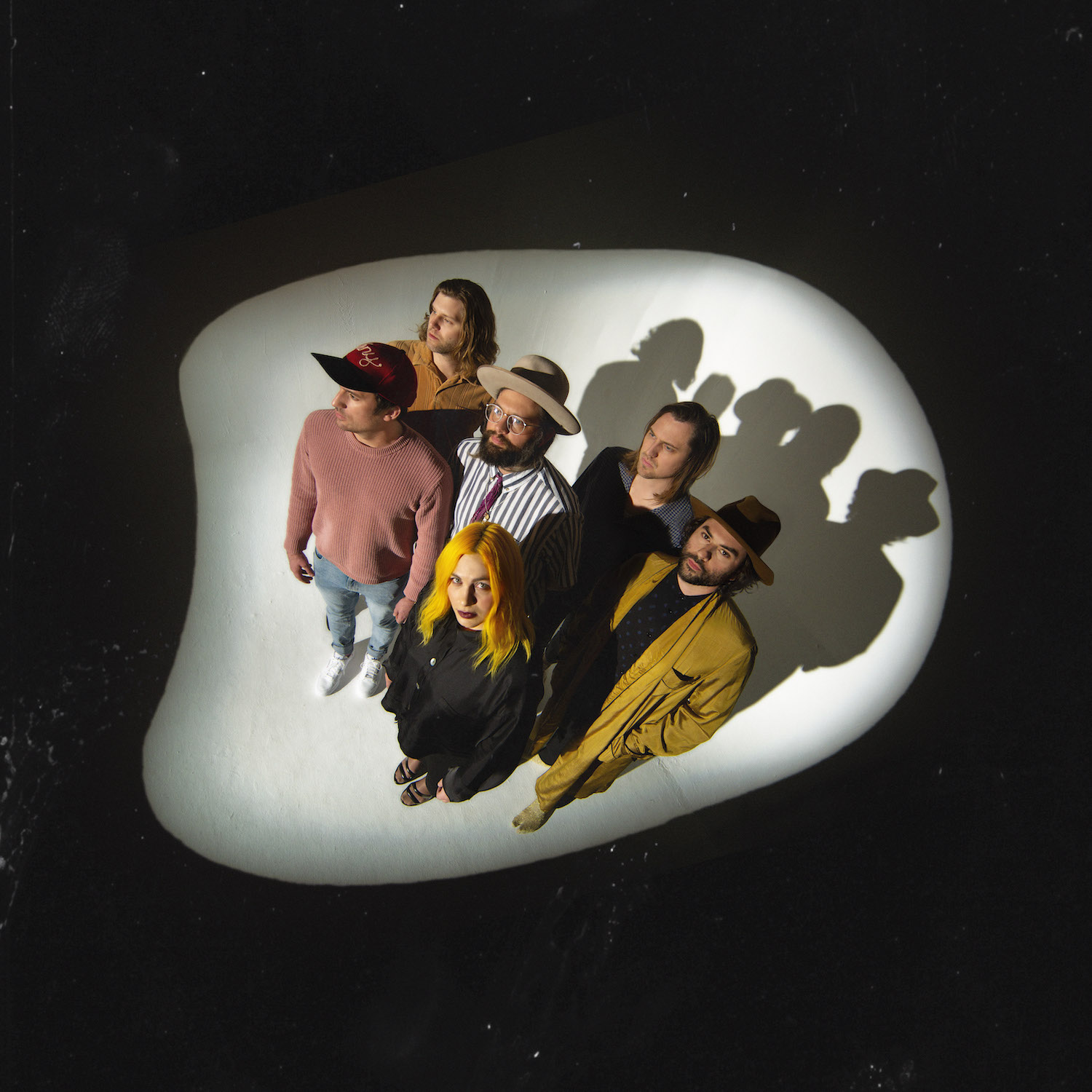
You talk about how it was a breakthrough for the band: How do you feel the band has changed with this record? What, musically, are The Head and the Heart doing differently, than perhaps you did before?
Jonathan Russell: It’s one of the most selfless records, I think, we’ve made. I think for the first time, instead of thinking like, “Oh, Charity plays violin, so you should play violin on the song,” or, “Chris, you’re a bass player, so you should play bass on this song,” which already sets these limitations and applies rules –I think one of the main things we did, kind of like on our first record, was that there were no rules. Because of these things that were outside of our control, like Kenny needing to take time away, Josiah no longer being with us, and bringing in a new writer such as Matty, I think because we were figuring out how to work together, almost out of like awkwardness, we just did what felt right in the moment. And I think because it had been almost 10 years of doing a certain thing, that thing wasn’t the first thing we wanted to try. We wanted to just kind of deviate from this line that we had been on. And I think again, because it was Matty’s first time with us, you know, it didn’t get steered back into The Head and the Heart territory; it just went in a direction that it was going naturally.
I get what you mean. I know it took Fleetwood Mac 10 years to get to their groundbreaking album, right? Rumours like their eleventh record, which is weird to think about today.
Jonathan Russell : (laughs) holy shit, you’re right!
Right? If a band had eleven albums today, they must be ancient – because bands only put out an album once every couple of years.
Jonathan Russell: Unless you’re King Gizzard and the Lizard Wizard – they’ve already done, like, thirteen albums or something!
Right! But musically, when I listened to Living Mirage for the very first time, it felt so confident! Like you really found a sound that was different from the more acoustic, folk, and rock elements of your debut. This one just felt like it was free of that – it was its own thing, working with the instruments that it had.
Jonathan Russell: I mean, I’m glad that that comes through. I don’t know that we were aware when we were doing it necessarily, but everyone is older now; once you turn 30, I just feel like a switch gets turned on and it’s so relieving – because you don’t fucking care about factoring in everyone else’s expectations: Like, “What are people gonna think when I do this?” Or like, “What if I don’t do that? Am I gonna miss out?” You just like where you’re at, and you’re confident in what you’re doing, and I think that’s starting to translate into us as musicians and as artists.
You just like where you’re at, and you’re confident in what you’re doing, and I think that’s starting to translate into us as musicians and as artists.
You stop caring and you just do.
Jonathan Russell: Exactly yeah, you don’t think like, “Well, can we do this?” It’s always a little nerve wracking when you’re making new music together, because you’re obviously aware of the amazing fans you have – and I think it’s inevitable, somewhere in your mind, to think about that from time to time. I think for different people in the band, that weighs on them more or less; for me, I almost have too much of blind confidence sometimes? I think it works to my advantage sometimes, and it can also come out in awkward ways, but yeah… Chris and I, we just knew, when we stumbled across “Living Mirage,” “Running Through Hell,” and “Glory of Music” out in the desert, it just felt right. It didn’t feel like it needed to be second-guessed, and I think that’s one of the best things we did on this record, was not second guessing what we were doing.
I love that. So you introduced the record and this “new era” of The Heart and The Heart to everybody with the song, “Missed Connection.” What’s the significance and your personal connection to that song?
Jonathan Russell: That’s actually a song primarily coming from a place of me meeting my now girlfriend of three years, which – not to sidestep too far, but “Living Mirage” really is like my sort of abstract love song to her. But “Missed Connection” is loosely around me missing a flight in Chicago, getting stuck in Chicago, winding up at Lollapalooza, and meeting this girl who I’ve now spent almost every single day that I have control over with, for the last three years. And it’s kind of just tying in, what are the odds – I wasn’t supposed to be there; there were other opportunities I could have taken to like, stay in the airport, take a redeye, just try and get home, but this little voice was like “Ahhh, maybe this is a good thing that you’re stuck in Chicago, like you’ve got a bunch of friends here; maybe should go see them and just follow those little breadcrumbs that the universe is handing out to you.” So a personal element is there for me, but I always really love keeping things open for other people to experience –to sort of let the song blueprint over their own life. I’ve just always gravitated towards songwriters like that, like Tom Petty, he always comes to mind – like, this is about you, but it’s also strangely about me.
So I like keeping those doors open. So “Missed Connection,” I have a personal relationship to for that reason, but it was also a struggle trying to finish that song, because it was such a departure in how few words I had to convey something – which was new for me. Like, I’m just used to a certain meter, and I’m used to a certain amount of lines to get to the point. That song was kind of an experiment of trying to break out of that. So really, in verse two, I couldn’t figure out how to finish that song. And I finally was just like, “You know what, I’m just gonna write about struggling in something that I love doing that I’m not sure that I’m doing it well.” So like, “I lost myself in this maze / Felt it slipping sideways,” all that stuff, it’s just me talking about how I’m trying to figure this shit out.
I think that's wonderful; so few people end up doing that – you get stuck on a song and you go away into something else, but it's kind of fun where a song can have two different stories in it for you, and then to listeners it’s something totally different.
Jonathan Russell: Yeah, it’s a trip. That was, like you said, the first song we released, so when we started playing out some of the new songs, that was the first one that people would have had a chance to hear. And it’s always a little nerve wracking performing new music for people, because in the beginning, it’s the closest to you still and you’re a little vulnerable in those moments – like, now you’re directly going to see and feel if people will connect to it or not.
And I struggled a lot with that song in particular, because I don’t play any instruments in it. It’s really like a three-piece band on the record – it’s piano, bass, and drums on that recording. There’s overdubs of synths, Matty’s doing stuff like that, but I’m just walking around with a microphone for the first time. The first few times of performing that song I was like, not looking at the audience and feeling kind of like a fish out of water on that song. My brother saw me perform it one time at a show in Colorado, and he was like, “What are you doing, man? Like, it’s a great song, but you don’t look confident when you’re doing that song, and it makes other people feel weird – you gotta just own the shit.” And my brother, who does not play music at all, gave me the best advice I’ve ever received. Things kind of got back on track from there.
One of the other things I really appreciate about Living Mirage as a whole is how catchy it is. It’s an incredibly melodic record, and I'm curious if you feel this way too, and if so, how you think these really, really dazzling melodies came to be around this album in particular?
Jonathan Russell: In part of Signs of Light, but also between Signs of Light and Living Mirage, now that I’m more and more writing without a co-partner in the band, with some of those songs, for the first time co-writes were explored with me. But even before the co-writes happened, my way of working – my way of creating demos – changed. Before I necessarily know what I want to talk about, I’m just obsessed with melodies. I’m like a melody-first guy, and so I’ll make my demos, and I’ll just use syllables and sounds to flesh out these melodies, and then I’ll work on lyrics afterwards. So when I went into writing all of these songs, I would start with loops and just throw six melodies at the wall and just whittle them down until the best ones were left. I remember reading something one time about The Beatles, like they would write a chorus, and then for the next part of the song, they basically would just try and beat the chorus, until every part of the song was as strong as the chorus melody. And in a way, I guess I tried doing that on a lot of these songs as well.
Well, we haven't really talked about your favorites personally. Are there any songs aside from the two that we've talked about already that are your personal favorite or favorites?
Jonathan Russell: Yeah, “Running Through Hell” is my favorite song on the record. The groove that Chris and Tyler are doing… You mentioned Fleetwood Mac, and it’s such a Fleetwood Mac-era groove. That’s one part of it, but also lyrically, and style of singing wise, you know, I actually do some like talk singing. Again, going back to Tom Petty, I didn’t realize how hard it was to get a talking verse into a song, and not just feel like, “You can’t do that.”
Here we are talking about not second-guessing the record, but there of course are moments, and that’s – I mean, I literally say, “I need a dog, man.” There were things that I did subconsciously on the demo, and when we were listening back, Chris would just say, “Don’t change that! Do not change that. You’ve got to leave that sit in there.” I think from the help and guidance of people like Chris and sometimes our producers, I finally let myself leave my personality in, more so than I ever have. That can be one detriment from being in a band, is we’re all very self-critical to one another. Sometimes you shave off the edges to make everyone else feel comfortable, and I think I tried to leave in as much of my quirks that I bring to the table; I tried to leave as many of those in there as I could on this record. “Running Through Hell,” to me, is a great example of that, or it’s the closest example of that.
I think I get what you mean, in terms of actually allowing yourselves to be yourselves.
Jonathan Russell: It’s funny that you say that; it’s true –
We've talked about how you're so right – after you make that first record and you enjoy some semblance of success, whatever that is, suddenly you're chasing that again and again – and for the first time, with this album, this record, it's not chasing anything; it's just doing it on its own.
Jonathan Russell: Yeah, you know, I think… It’s not like you want to put out another record, and it’s not necessarily that you’re trying to chase something you already did, but I think because you now have so many people watching, the more you put out of yourself, the more damaging it can be – the harsher the critic. And I think for a while, I would pare back some of who I was in the music just out of self-preservation. And maybe it’s because it’s the fourth record, or maybe it’s because I’m 34; but I just didn’t feel the need to do that anymore, and thank God! I think the more honest you can be in art, the stronger the art is.
I think the more honest you can be in art, the stronger the art is.
I can't agree with you more. I think it’s so wonderful that we get to hear all these different parts of you in this in this album. How do you feel about having something this personal, something you took chances on, out in the world finally?
Jonathan Russell: Well, this may surprise you, but it’s funny. It’s out now, and it already feels old to me. It already feels like a safe record. Some of the songs that we had the most conversations over, like “Brenda,” for instance, we were like, “I don’t know, is this going too far too soon?” And those songs already feel like baby steps to us, or at least to me. I love this record; I do think it’s the best record we’ve ever made. We put a lot of work into it, I think. I’m not saying that we nailed this necessarily, but when you can get to a place where it almost feels effortless, and you can’t see how much work was put into it, I think that’s a pretty high standard to try and aim for. But all of that being said, I already have new ideas, and I already have things that I want to show the world that is not on this record.
That's so great! It sounds like The Head and the Heart have reached this really exciting new place, in terms of the artistry –
Jonathan Russell: It feels that way.
– the artistry, which is really just a fancy word for your career. It’s wonderful to have that confidence and to feel like you've gotten to that comfortable place. So, you took a long time between Signs of Light and Living Mirage; do you see it taking a longer time again, or do you hope to churn things out more regularly?
Jonathan Russell: Yeah, that’s a great question. That’s actually something we’ve been talking about a lot. So here’s a two-fold response. Some of what I love that’s happening, especially in the hip hop world, is releasing music as it’s being written. You’re not necessarily waiting for it to come out on an album. And I think they’re opening doors for everyone to approach it that way, whether you’re a pop artist or a country artist, or a pop-country artist. And so I think we’ve realized that there’s more than one mode of working together as a band that can be fruitful, and we’re absolutely excited to have less time in-between new music. Maybe that does mean putting it out in different forms; maybe it’s an EP, or maybe it’s just releasing songs as they’re written and recorded. But yeah, I think you’ll be seeing music from The Head and the Heart much more often, and quickly.
In terms of people listening to this record… Joshua Tree is known for opening the mind and going on these spirit journeys or quests. I think one of the band members described this record as a “spirit quest” of sorts… How do you hope people hear these songs for the first time?
Jonathan Russell: I want to say that you don’t have to take things so seriously; you can still have fun… I don’t know. I want the response to this to be so important. But I mean, I guess at the end of the day, what we were trying to do was, we wanted to write about what was happening currently and what we’ve all gone through! …It’s too deep of a question to just flippantly answer; I wish I had it right away. I mean, I think I said at one point that, listening to that record and listening to these songs back, it just made me love my friends and my family, and it made me want to call distant relatives that I hadn’t talked to in a long time and just be like, “Hey, how you doing?” It just kind of makes you want to appreciate the things that are around you –there’s really no way to answer that without sounding a little hippy-dippy, but it’s kind of true. I think there’s more love in this record, for ourselves and for the world, than we’ve ever done before.
I think there’s more love in this record, for ourselves and for the world, than we’ve ever done before.
— —
:: stream/purchase Living Mirage here ::
— — — —

Connect to The Head and The Heart on
Facebook, Twitter, Instagram
Discover new music on Atwood Magazine
? © Alex Currie
:: Stream The Head and The Heart ::

